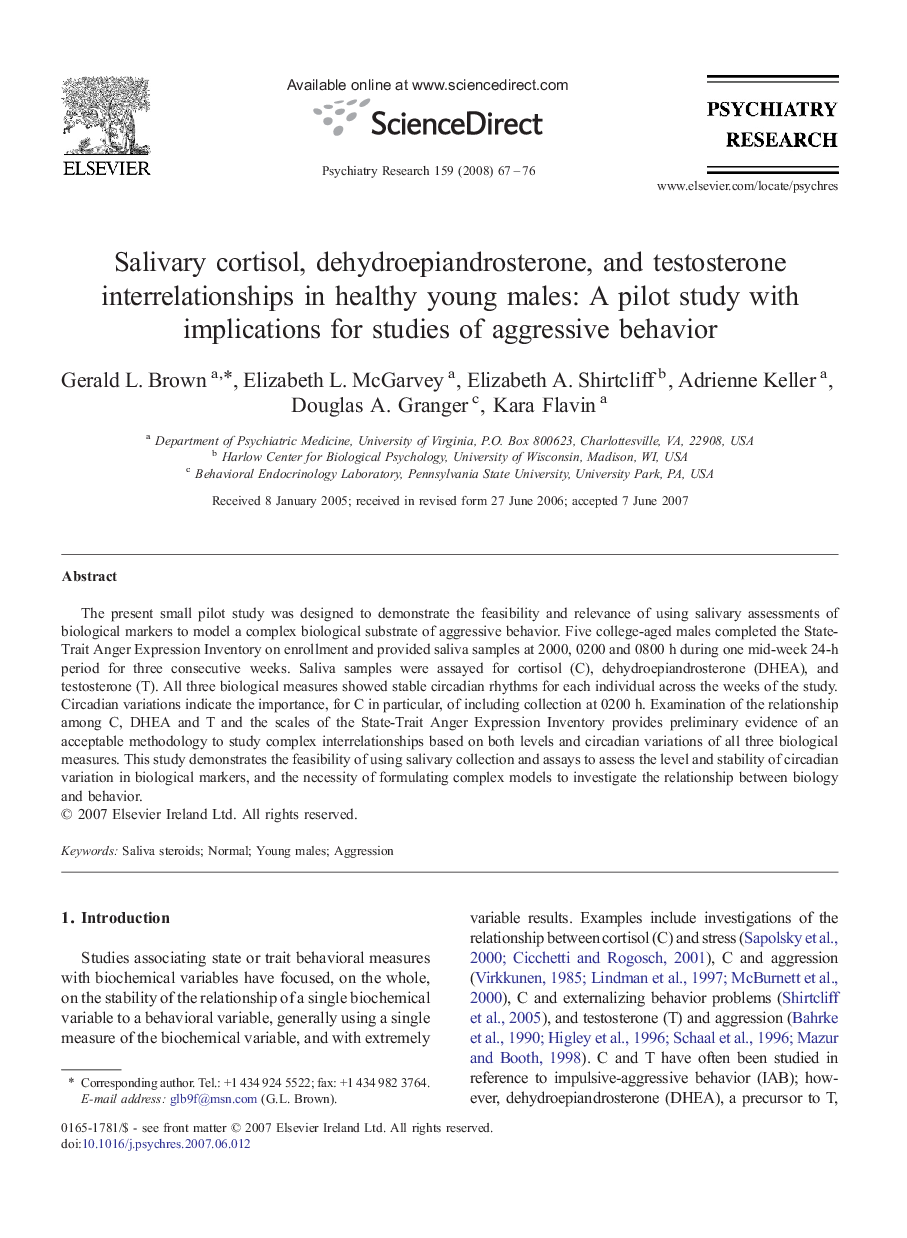| کد مقاله | کد نشریه | سال انتشار | مقاله انگلیسی | نسخه تمام متن |
|---|---|---|---|---|
| 334035 | 546005 | 2008 | 10 صفحه PDF | دانلود رایگان |

The present small pilot study was designed to demonstrate the feasibility and relevance of using salivary assessments of biological markers to model a complex biological substrate of aggressive behavior. Five college-aged males completed the State-Trait Anger Expression Inventory on enrollment and provided saliva samples at 2000, 0200 and 0800 h during one mid-week 24-h period for three consecutive weeks. Saliva samples were assayed for cortisol (C), dehydroepiandrosterone (DHEA), and testosterone (T). All three biological measures showed stable circadian rhythms for each individual across the weeks of the study. Circadian variations indicate the importance, for C in particular, of including collection at 0200 h. Examination of the relationship among C, DHEA and T and the scales of the State-Trait Anger Expression Inventory provides preliminary evidence of an acceptable methodology to study complex interrelationships based on both levels and circadian variations of all three biological measures. This study demonstrates the feasibility of using salivary collection and assays to assess the level and stability of circadian variation in biological markers, and the necessity of formulating complex models to investigate the relationship between biology and behavior.
Journal: Psychiatry Research - Volume 159, Issues 1–2, 30 May 2008, Pages 67–76